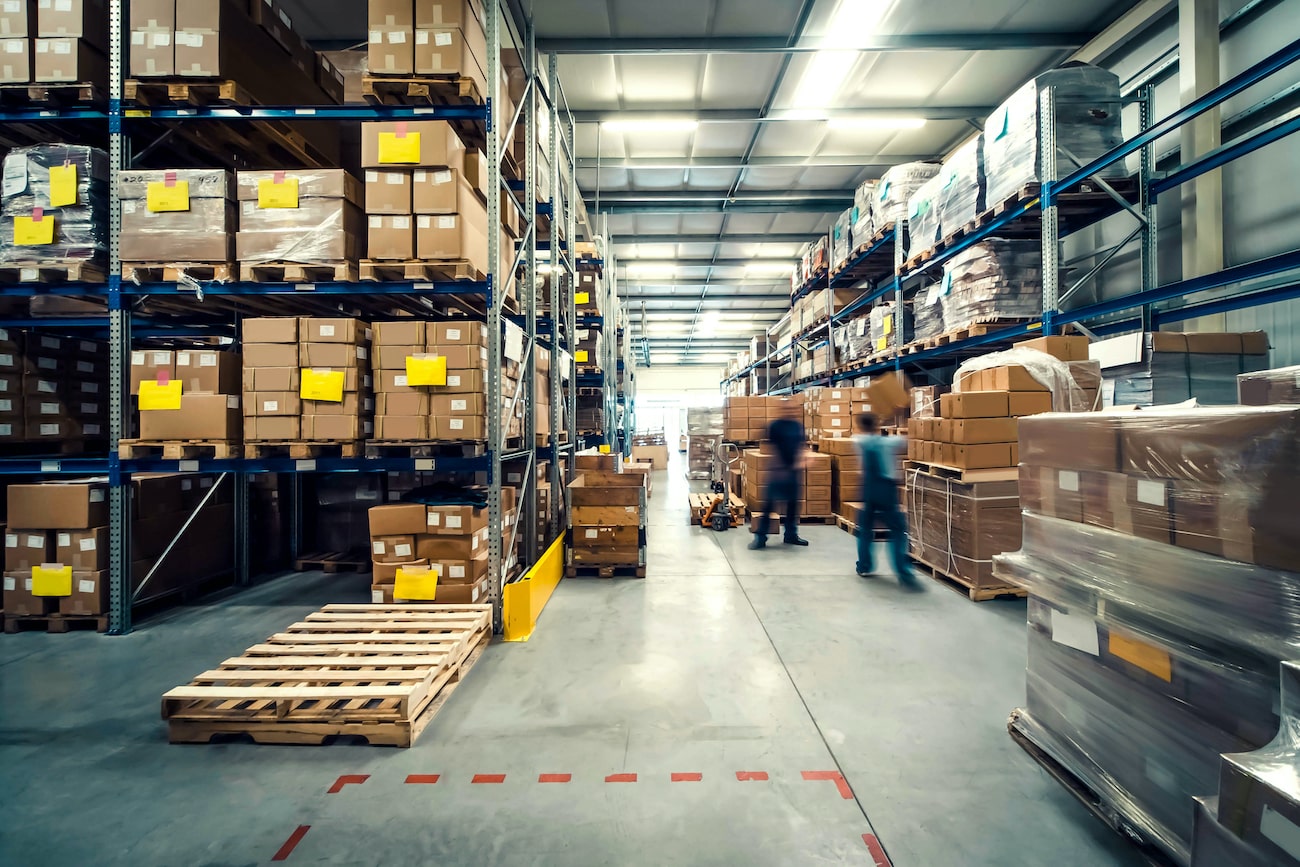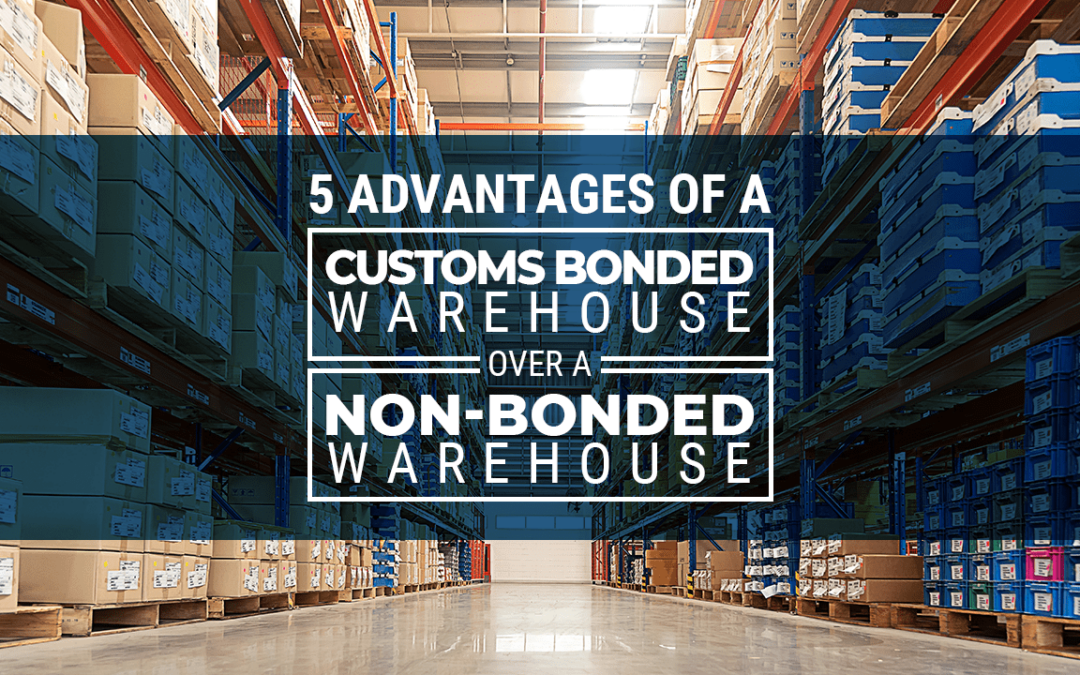Customs bonded warehousing can make everyone’s lives easier, but unless you’re directly involved with freight-forwarding, warehousing, or Customs, you may not know what it means to be a bonded vs a non-bonded warehouse.
We put together this guide to help you navigate your international imports and exports.
What is a Customs Bonded Warehouse?
Like a non-bonded warehouse, a Customs bonded warehouse is a secure location at which you can store, export, and import goods. The difference comes down to the warehouse’s connection with Customs.
Imported freight must be inspected and approved by Customs agents before it can be delivered to its destination. When imported freight is stored in a non-bonded warehouse, the importer must immediately pay taxes on the goods and have them inspected no matter where they’re going next. To make the jobs of Customs agents a little easier, they work with certified, Customs bonded transportation and warehousing services that can receive and hold the goods until duties and inspections are addressed. A Customs bonded warehouse is sometimes supervised by Customs officials, which allows exporters to defer their payments until goods are bought.
Get a free warehousing quote
Get a free warehousing quote
Customs Bonded Warehouse Requirements
Most Customs bonded warehouses are owned by the government, but there are some that are privately-owned. In order for a private storage facility to become a Customs bonded warehouse, the warehouse operator must apply to be a certified import storage facility with the US Customs office.
In order to be approved, Customs bonded warehouses must designate a specific area that will only be used for storing imported goods, and prove their operational and financial integrity. After being approved, these facilities must post their Customs bond and agree to occasional Customs supervision.
1. Long-Term Storage
Customs bonded warehouses are great for long-term storage. In the United States, you can store with one for up 5 years without paying Customs Duties; in some countries, bonded warehouse storage periods are indefinite. Storing long-term prevents the need for unnecessary travel and allows importers to develop relationships with reliable and trustworthy vendors.
2. Deferred Duties
The great thing about Customs bonded warehousing is that it saves money. When goods are imported and stored at a Customs bonded warehouse, the duties are deferred until the goods leave the warehouse. This allows the importer to save money on storing their goods regardless of what they intend to do with the cargo. This also gives the importer extra time to complete the legal legwork needed to import their goods into the country. Some importers record saving 25-30% in deferred taxes over comparable non-bonded warehouses.
3. Ideal for Storing Restricted Goods
Customs bonded warehouses are perfect for storing restricted goods. Importing restricted goods involves much more paperwork and legal legwork than importing conventional goods. Unfortunately for importers, there is a strict period of time during which restricted goods can be held in a warehouse before the proper paperwork is approved. Customs bonded warehouses are exempt from this probation period, which means, similar to duty deferment, importers can store restricted goods for up to 5 years while they file the necessary paperwork.
4. Convenient for International Shipping
One of the most significant advantages of a Customs bonded warehouse is how convenient it is for businesses that ship internationally. A business can import goods to a Customs bonded warehouse across the world and store it there until further notice without paying any duty fees.
The importer can then take one of two routes:
Importing
Goods can be stored at the warehouse until there is an increase in demand for the goods, at which point the importer will pay duties on the goods as they are delivered to their destination within the country of holding. The goods do not need to be imported all at once.
Exporting
Importers can store goods at the warehouse to facilitate the consolidation of assets before being exported again. When the consolidated goods are exported out of the country of holding, the importer isn’t charged duty fees because the goods stayed under the surveillance of Customs—this prevents double taxation.
5. Stress-Free Relationship
Ultimately, storing goods at a Customs bonded warehouse is stress-free for importers, and finding a certified warehouse will make storing and transporting international goods a smoother process. Goods are kept safe and secure with 24hr surveillance; duties and taxes are deferred until their goods leave the facility; there’s no rush on paperwork, payment, or inspection; and goods can be held for years if demand for the product is low.
None of these are possible in a non-bonded warehouse, in fact, delayed payments and incorrect paperwork at non-bonded warehouses will result in the destruction of the stored goods.

Find a Trustworthy Warehousing Partner
At Bridgetown Trucking, we offer Customs bonded transportation and warehousing for imported goods. We ensure they’re inspected and delivered properly and quickly. We meet all the criteria to be an approved Customs bonded warehouse, and all of our employees are TSA certified. All of our facilities are equipped with 24/7 surveillance, advanced security systems, and patrolled yards so you can be sure that your goods are in a safe and secure space.
Continue Business as Usual
Call us up to learn more about our Customs bonded facilities!

